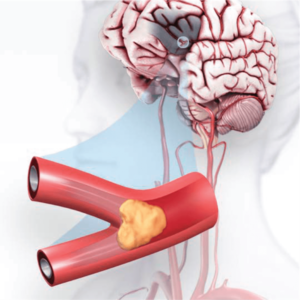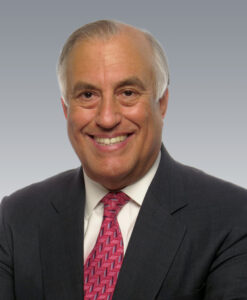Most people know somebody who has had a stroke and are aware that not everyone will survive. Stroke kills more people in the United States than almost every other reason. It’s also worth remembering that a stroke can be disabling, leading to permanent brain damage.
What Is a Stroke?

A stroke is where the blood supply to your brain is either blocked entirely or is interrupted. Your brain needs a continuous supply of blood as, without it, brain cells soon begin to die. The damage caused depends on the length of time the brain is without a blood supply and the location of the blockage.
What Are the Signs of a Stroke?
It’s critical to recognize the signs of a stroke because immediate medical attention can greatly reduce the damage to the brain. Signs include:
- Being unable to lift both arms over your head at the same time
- Blurred vision and slurred speech
- Paralysis affecting one side of your body
- Numbness affecting your face, arm or leg
If you think you might have a stroke or think someone close to you is having a stroke, make sure you get urgent medical care. You need to receive medical treatment within three hours of a stroke to help prevent permanent damage to your brain and your heart.
Different Types of Stroke
There are two different types of strokes which are a transient ischaemic attack called a TIA or mini-stroke and which occurs when blood flow to the brain is temporarily blocked. The symptoms caused by a TIA usually disappear after a few minutes, and with prompt treatment, people can recover from a TIA without permanent damage. However, it is important to get medical attention as the risk of having another stroke within the next couple of days is very high. A TIA is an early warning sign that something is wrong.
The other type of stroke is a hemorrhagic stroke where a blood vessel in your brain will leak or burst. It can cause severe headaches because of the pressure buildup in your brain. Sometimes the blood vessels will burst because of other existing conditions, for example, taking blood thinner medication, having hypertension, or an aneurysm.
However, you can reduce your risk of having a stroke by making sure you maintain a healthy heart. If you are at risk of coronary artery disease or other serious heart conditions, it’s important to have regular tests with your doctor or cardiologist.
Reducing Your Risk of Stroke
Risk factors for stroke can fall into three different categories.
Risk Factors You Can’t Control
The first category includes factors that you cannot change or non-modifiable risk factors. These include your age, ethnicity or race, your gender, and your weight at birth. Although you might not be able to control these factors, they do provide a baseline from which your cardiologist can work, making it more important to control the changeable factors.
Risk Factors You Can Control
There are many risk factors that you can control, and these include your blood pressure levels and making sure they don’t get too high, and ensuring you get plenty of exercises. If you smoke, you can always quit, even though it may be difficult initially. People with diabetes can make sure they control this condition properly, often with medication, and by modifying their dietary and exercise habits.
It’s within your grasp to reduce high cholesterol levels, either with lifestyle medications like modifying your diet and taking more exercise or with medication prescribed by your cardiologist. If you are obese, it’s important to try to lose those extra pounds to help improve your overall health and reduce your risk of heart disease. Alcohol abuse and drug abuse are also controllable factors. If you do have cardiovascular disease, follow your cardiologist’s advice carefully about managing your condition. Attend regular checkups and take all medication prescribed.
Risk Factors That Are Less Easy to Change
These include risk factors that are only just becoming apparent, so we may not be exactly clear about the link between these conditions and stroke. These risk factors include obstructive sleep apnea, where people will stop breathing for several seconds during sleep, often multiple times each night.
Often, people with obstructive sleep apnea will be unaware they have this condition. One tell-tale sign is snoring loudly before waking up with a loud gasp or snort, or waking up with a dry mouth, or feeling fatigued and excessively sleepy during the day. If you think you may have obstructive sleep apnea, visit your doctor as they can refer you for a sleep study if needed, where your sleep is monitored overnight, and a firm diagnosis can be made.
Other risk factors that are only just emerging include persistent migraines and gum disease. It might seem strange that gum disease could affect your cardiovascular health, but there is increasing evidence that the inflammation caused by gum disease can affect other parts of your body, potentially narrowing or blocking arteries. Regular dental checkups can help to modify this risk factor, and if you have gum disease, follow your dentist’s advice to control this disease.
If your family history increases your risk of heart disease, a cardiologist can perform medical tests to check the condition of your heart.
Medical Tests to Assess Your Risk of Stroke
When you see a cardiologist, they can review your family history and conduct a physical examination. Based on this information, they can recommend the most suitable tests to assess your heart health. One of the most popular tests is an ECG or electrocardiogram which measures the electrical activity in your heart and can show damage to your heart muscle that occurs after a heart attack or stroke. A carotid Doppler test uses sound waves to assess the condition of your arteries, showing if they are narrowed or blocked because of that build-up. It’s an extremely useful test in assessing your risk of having a stroke.
You may need a heart monitor if you are more at risk of having a stroke or a heart attack, and heart monitors are used as a preventive measure. They can be especially useful for people who have atrial fibrillation because this condition increases the risk of stroke considerably. If necessary, your cardiologist can also work with you to improve your diet and exercise routines and will provide suitable medications to control blood pressure levels or cholesterol levels.

Dr. Steven Reisman is an internationally recognized cardiologist and heart specialist. He is a member of the American College of Cardiology, American Heart Association, and a founding member of the American Society of Nuclear Cardiology.
Dr. Reisman has presented original research findings for the early detection of "high risk" heart disease and severe coronary artery disease at the annual meetings of both the American College of Cardiology and the American Heart Association. Dr. Reisman was part of a group of doctors with the Food and Drug Administration who evaluated the dipyridamole thallium testing technique before the FDA approved it.
Dr. Steven Reisman's academic appointments include Assistant Professor of Medicine at the University of California and Assistant Professor at SUNY. Hospital appointments include the Director of Nuclear Cardiology at the Long Island College Hospital.



